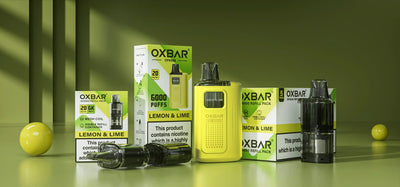Introduction
Vaping has gained significant popularity in recent years as an alternative to traditional tobacco smoking. However, many people are still unsure about the legality of vape products, particularly in the United Kingdom. In this article, we will delve into the regulations surrounding vaping in the UK, exploring its legal status and key guidelines set forth by relevant authorities. Additionally, we will provide external links to legislation and news sources to support the information presented.
Understanding the Legal Status of Vape Products
Vaping is legal in the UK, but it is important to distinguish between the legality of vape products themselves and the regulations that govern their sale, marketing, and use. In May 2016, the Tobacco and Related Products Regulations (TRPR) came into effect, implementing the European Union's Tobacco Products Directive (TPD) in the UK. These regulations aimed to ensure the safety and quality of vape products, as well as protect consumers from potential harm.
Key Regulations for Vape Products
-
Age Restrictions: It is illegal to sell vape products, including e-cigarettes and e-liquids, to anyone under the age of 18 in the UK. This age restriction applies both online and in physical retail stores. Retailers are required to verify the age of customers through appropriate identification methods.
-
Product Safety: Vape products sold in the UK must comply with specific safety requirements, including the size and capacity of refill containers, nicotine content limits, and labeling standards. These regulations are in place to ensure that consumers are aware of the potential risks and can make informed choices.
-
Advertising and Marketing Restrictions: Vape products are subject to advertising and marketing restrictions. These regulations aim to prevent the promotion of vaping to young people or non-smokers. For example, vape product advertisements cannot make health claims or directly target individuals under 18 years old.
-
Packaging and Labelling: Vape product packaging must adhere to certain guidelines, including displaying health warnings, ingredient information, and proper labeling of nicotine content. These regulations are intended to provide consumers with clear and accurate information about the products they are using.
-
Cross-Border Sales: The UK also regulates the sale of vape products from outside the country. Importing vape products for commercial purposes requires compliance with specific requirements, including notification to the regulatory authority and ensuring product safety standards are met.
-
Public Spaces and Restrictions: While vaping is generally allowed in public spaces in the UK, some locations have implemented their own rules and restrictions. For instance, some train companies, airports, and public transportation networks have designated vaping-free zones. It is always advisable to be aware of local rules and respect the preferences of others.
Current Developments and Future Outlook
Vaping regulations are not static and can evolve over time. Staying updated with the latest news and developments is essential for both businesses in the vape industry and individual vapers. Regularly monitoring reputable sources can provide valuable insights into upcoming changes or amendments to existing regulations.
External Links for Further Reading
- The Tobacco and Related Products Regulations 2016
- UK Government: Vaping Laws and Regulations
- Trading Standards UK: E-cigarettes and Vaping
- BBC News: Vaping Laws: What Are the New Regulations?
- Public Health England: E-cigarettes and Vaping: Policy, Regulation, and Guidance
Conclusion
Vape products are legal in the UK, but they are subject to specific regulations that aim to ensure safety, protect consumers, and prevent underage usage. Compliance with these regulations is essential for businesses operating in the vape industry, as well as

